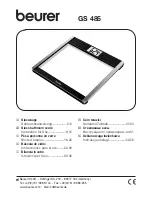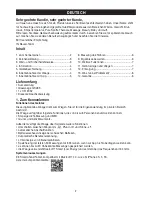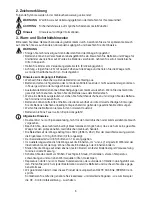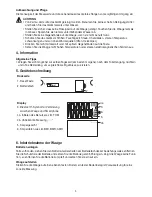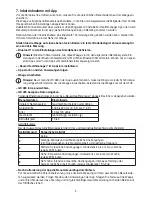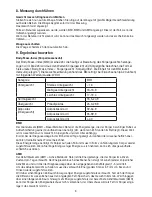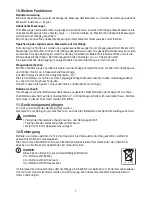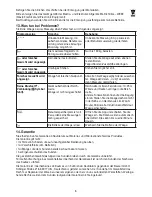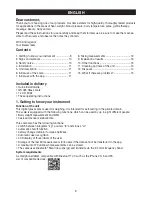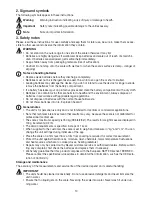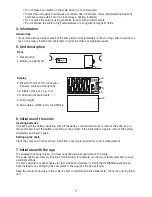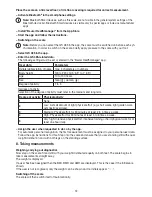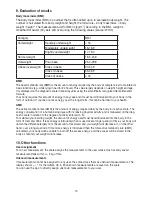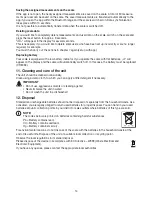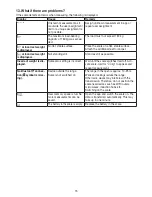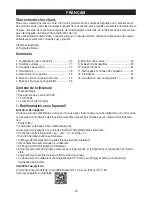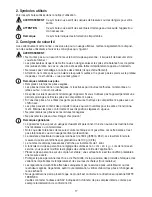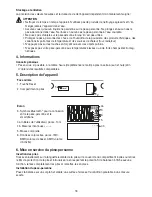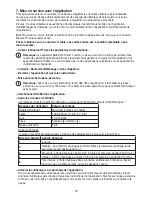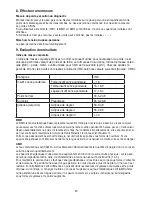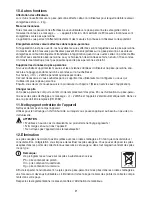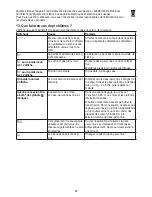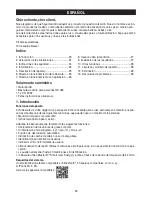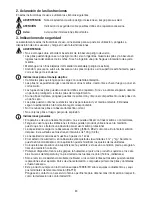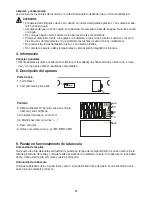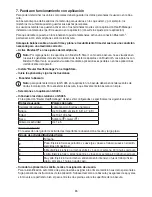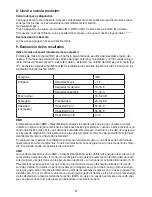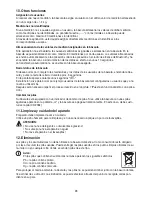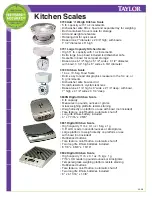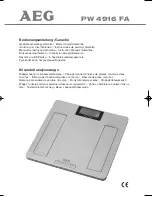
13
9. evaluation of results
Body mass index (BMI)
The body mass index (BMI) is a number that is often called upon to evaluate body weight. The
number is calculated from body weight and height, the formula is – body mass index = body
weight : height². The measurement unit for BMI is [kg/m²]. According to the BMI, weight is
classified for adults (20 years and over) using the following values (source: WHO):
Category
BMI
Underweight
Severely underweight
< 16
Moderately underweight
16-16,9
Slightly underweight
17-18,4
Normal weight
18,5-24,9
Overweight
Pre-obese
25,0-29,9
Obese (overweight)
Class I obese
30-34,9
Class II obese
35-39,9
Class III obese
≥ 40
BMr
The basal metabolic rate (BMR) is the amount of energy required by the body at complete rest to maintain its
basic functions (e.g. while lying in bed for 24 hours). This value largely depends on weight, height and age.
It is displayed on the diagnostic scale in kcal/day units using the scientifically recognized Harris-Benedict
formula.
Your body requires this amount of energy in any case and it must be reintroduced into your body in the
form of nutrition. If you take on less energy over the longer term, this can be harmful to your health.
aMr
The active metabolic rate (AMR) is the amount of energy required daily by the body in its active state. The
energy consumption of a human being rises with increasing physical activity and is measured on the diag-
nostic scale in relation to the degree of activity entered (1– 5).
To maintain your existing weight, the amount of energy used must be reintroduced into the body in the
form of food and drink. If less energy is introduced than is used over a longer period of time, your body will
obtain the difference largely from the amount of fat stored and your weight will decrease. If, on the other
hand, over a longer period of time more energy is introduced than the total active metabolic rate (AMR)
calculated, your body will be unable to burn off the excess energy, and the excess will be stored in the
body as fat and your weight will increase.
10. other functions
User assignment
For a new measurement, the scale assigns the measurement to the user whose most recently saved
measurement falls /- 2 kg of this.
Unknown measurements
If measurements cannot be assigned to any user, the scale stores them as unknown measurements. The
display shows „
“ for the initials. Up to 20 unknown measurements are saved on the scale.
You can use the app to directly assign unknown measurements to your user.
Summary of Contents for GS 485
Page 59: ...59 ...
Page 60: ...60 751 561 0814 Irrtum und Änderungen vorbehalten ...

